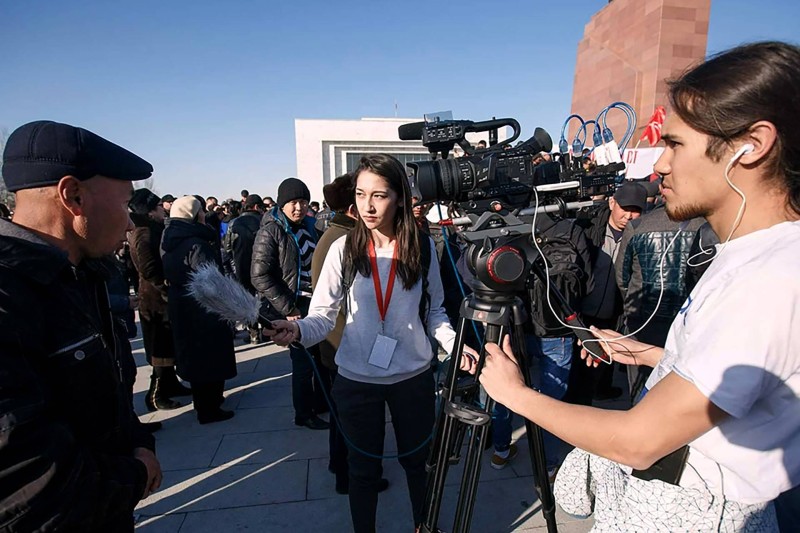In a country where many young people get their news from online videos, Kloop’s YouTube channel, which offers news analysis, explainers, and updates in both the Russian and Kyrgyz languages, is an essential resource. YouTube’s decision has done a major disservice to the Kyrgyz people.
Kloop is an award-winning organization that has partnered with OCCRP, Radio Free Europe/Radio Liberty, and other international media outlets to deliver hard-hitting investigative journalism in a challenging environment. Last year, the U.S. ambassador to Kyrgyzstan described a series of reports about high-level corruption co-produced by Kloop as the “single most important story of the past 18 months.”
In addition to investigative journalism, Kloop also covers day-to-day news. In recent years, it has begun to supplement its political coverage by organizing election observation missions.
It is in this context that YouTube’s takedown took place. This weekend, Kyrgyzstan held an important parliamentary election — the first since an uprising deposed the previous government. Ahead of the vote, Kloop uploaded an instructional video intended for election observers.
But though the video was obviously benign and not even publicly available, it was removed by YouTube on Friday on the baffling grounds that it contained “harassment and bullying.” Since then, Kloop has been unable to upload any other videos to its channel, damaging its ability to reach its audience during a sensitive period.
Kloop’s editors believe that the ban was the result of “an orchestrated campaign to flood this video with complaints,” though — because YouTube has not communicated the reasoning for its decision — this has not been confirmed.
Kloop has already faced pressure from Kyrgyz authorities, for both its journalism and its election monitoring, which has exposed numerous irregularities. It is difficult to imagine that YouTube would knowingly align itself with an aggressive government against a group of young independent journalists. And there is evidence to suggest that the takedown was the result of an automated action — a Russian-language version of the video remains available with no problems.
However, it is difficult to ascertain what YouTube is thinking, since the service has not communicated directly with Kloop’s editors beyond automated messages. There is no indication that the company has investigated Kloop’s appeal to reinstate the video, which was rejected.
YouTube’s ban on posting new videos is set to expire this Friday, but the damage has been done. OCCRP joins Kloop in urging YouTube and its parent company, Google, to investigate this incident and to change its policy of responding to user complaints, especially when these are inauthentic.
In an era of dangerous authoritarian populism, it is unacceptable for the work of independent journalists already under pressure from repressive governments to be hindered by global tech giants.


